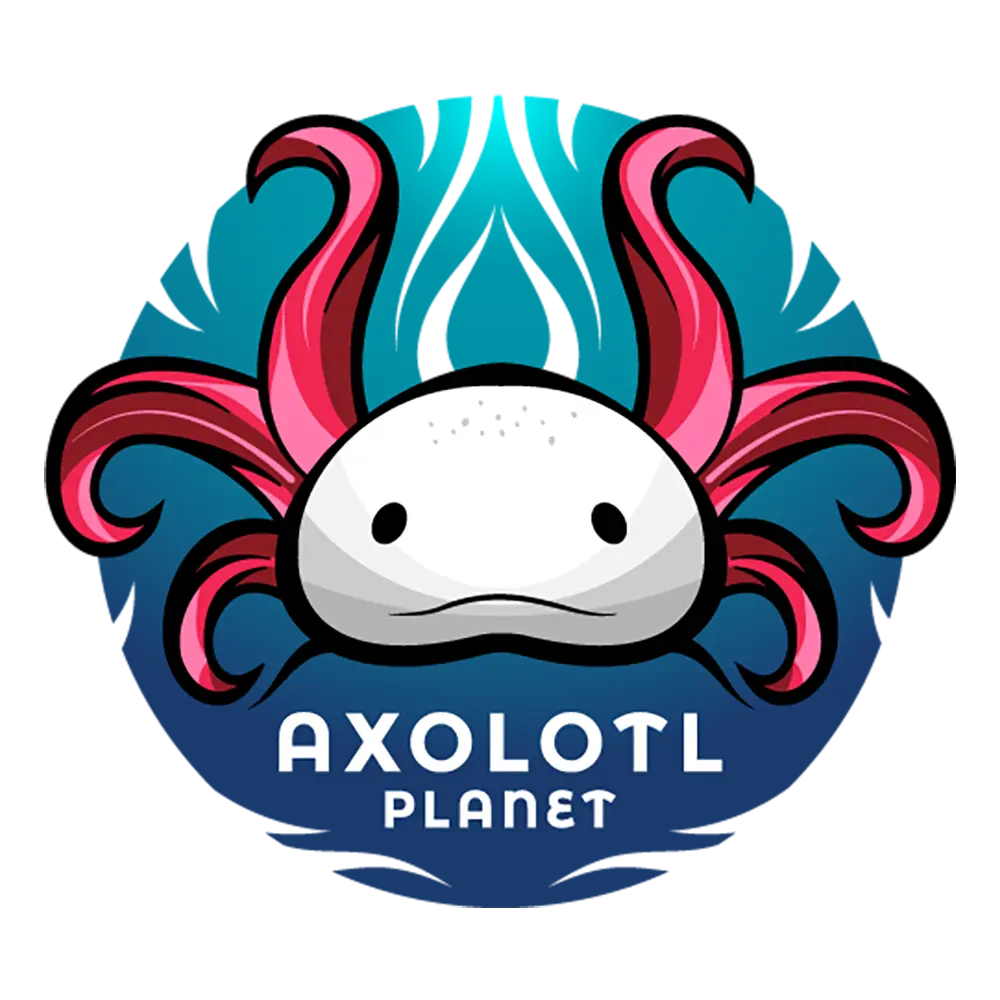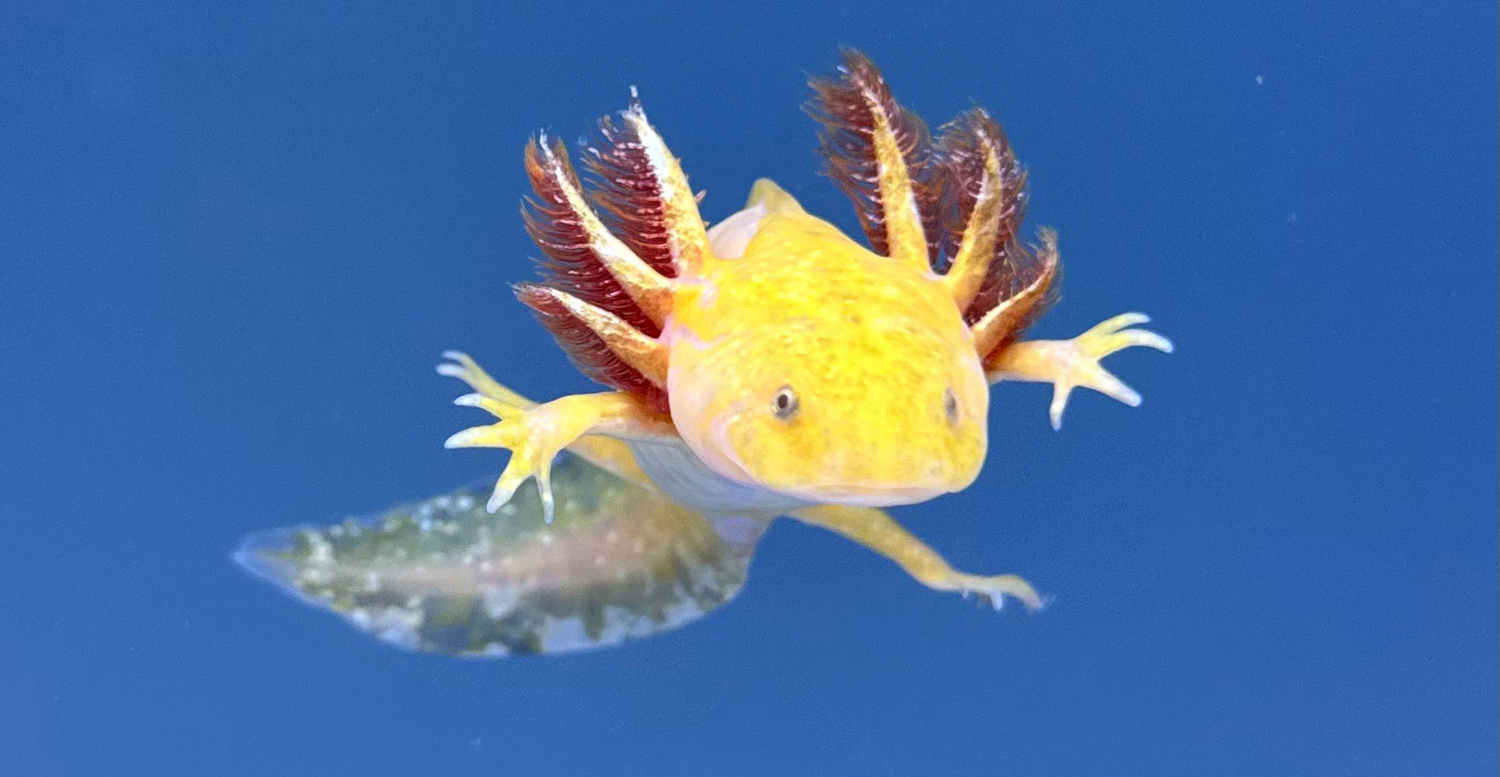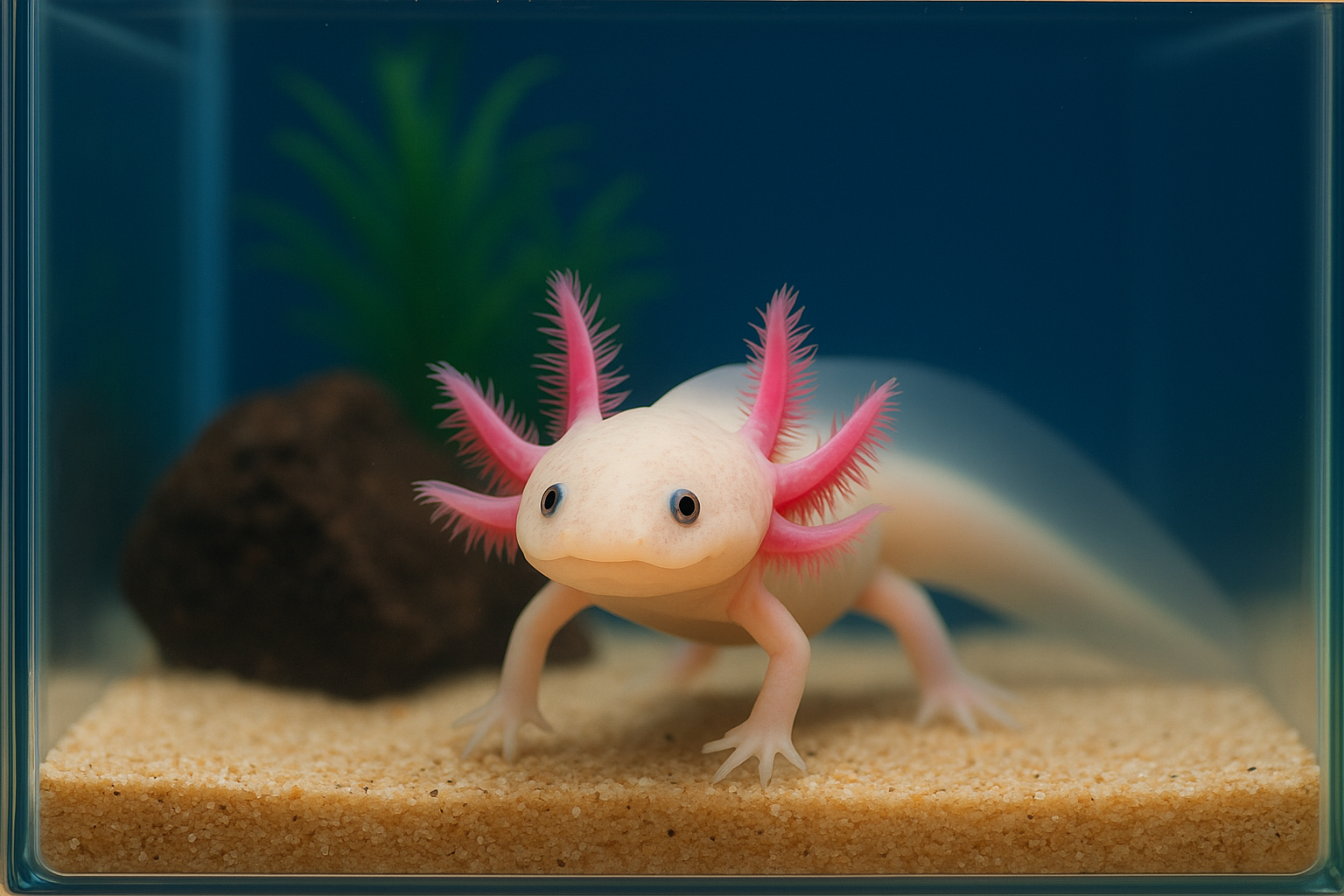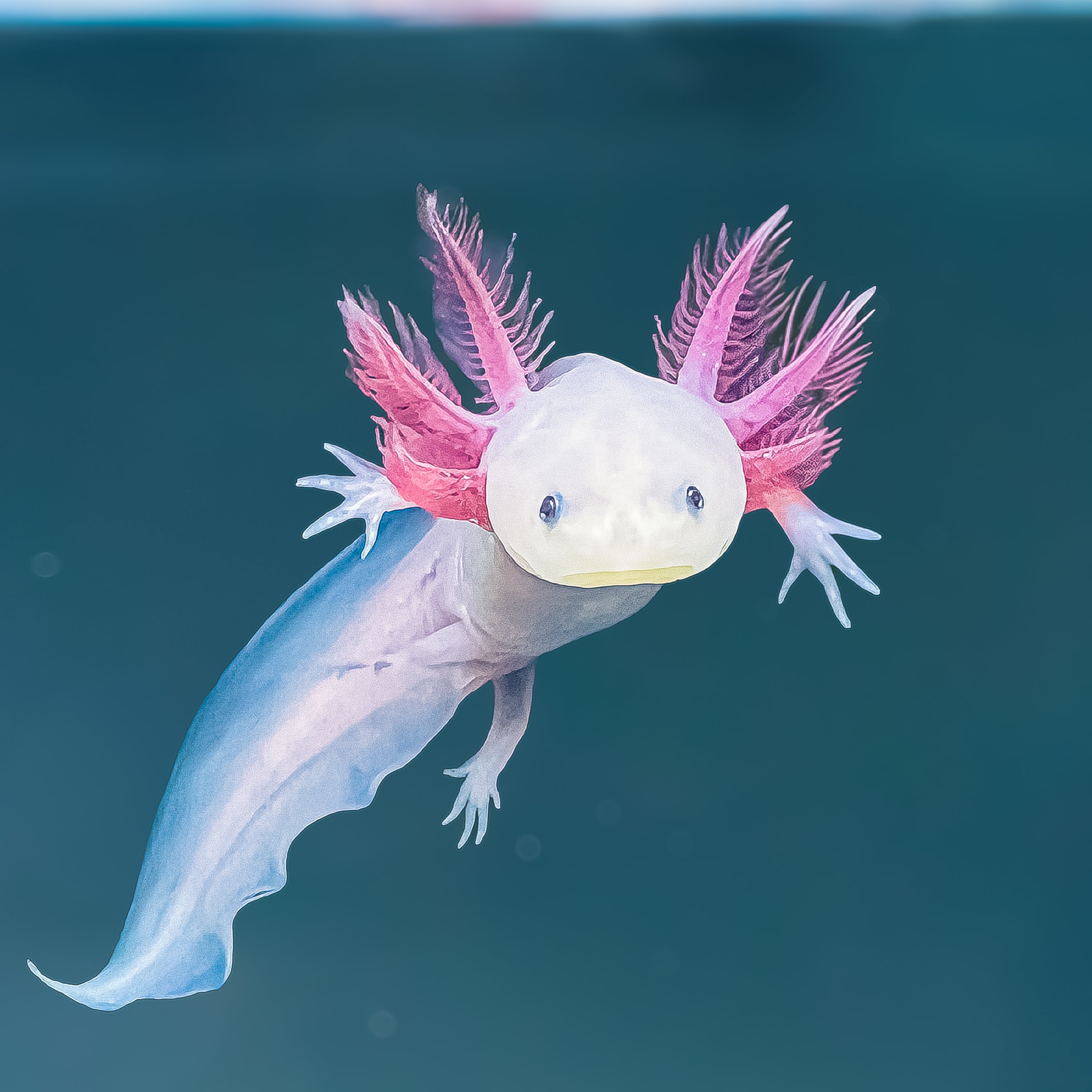Choosing the right axolotl breeder or vendor is one of the most important decisions you’ll make as a future axolotl owner. Because axolotls are exotic, long-lived, and sensitive amphibians, finding a reputable source ensures your pet will be healthy, ethically bred, and well-cared for from day one.
Here are the key factors every buyer should consider:
1. Health and Appearance of the Axolotls
A reputable breeder prioritizes the health of their animals. Look for:
-
Full, fluffy gills (not shriveled or curled forward).
-
Smooth skin free of fungus, lesions, or flaking.
-
Clear eyes and active but calm behavior.
-
Strong appetite—healthy juveniles are eager eaters.
⚠️ Red flag: Axolotls floating constantly, showing curled gills/tails, or kept in dirty water.
2. Clean and Species-Appropriate Housing
The environment axolotls are raised in is a direct reflection of breeder care:
-
Tanks should have cool, clean, dechlorinated water (~68°F).
-
Proper filtration and regular maintenance are essential.
-
Axolotls should be grouped by size to prevent cannibalism.
-
Hides and enrichment (caves, PVC, plants) show the breeder understands stress reduction.
-
Males and females separated unless intentional breeding is being done.
⚠️ Red flag: Overcrowded tanks or mixed-age housing.
3. Transparency and Documentation
Ethical breeders are open and transparent. Ask for:
-
Lineage/genetic history (to avoid inbreeding).
-
Feeding records (live food vs pellets).
-
Growth rates and DOBs (important for age accuracy).
-
Policies on refunds or health guarantees.
⚠️ Red flag: Breeder cannot or will not share parentage or basic husbandry details.
4. Breeder’s Knowledge and Education
A trustworthy vendor isn’t just selling you an animal—they’re preparing you for success.
Good breeders will:
-
Ask about your tank setup and cycling before selling.
-
Provide care sheets or ongoing guidance.
-
Warn you about common mistakes (gravel substrate, warm water, poor filters).
-
Be active in the axolotl community: forums, groups, or educational platforms.
⚠️ Red flag: Sellers who rush a sale without asking you a single question.
5. Community Reputation and Reviews
Check beyond the vendor’s website:
-
Facebook groups, Reddit, Discord servers, and forums will quickly expose bad actors.
-
Look for breeders with repeat buyers and positive care stories.
-
A lack of online presence or consistent complaints is a red flag.
6. Ethical Breeding Practices
Axolotls are endangered in the wild, so ethical breeding matters.
Ask vendors:
-
How often do they breed pairs?
-
Do they focus on healthy genetics over rare morph sales?
-
Are they rehoming axolotls responsibly (not overselling to unprepared owners)?
⚠️ Red flag: Sellers mass-producing axolotls for “rare color morph” hype without regard for health.
7. Why You Should Avoid Pet Stores
Most chain pet stores:
-
Keep axolotls in warm, overcrowded tanks.
-
Provide inaccurate care advice (tropical fish setups, gravel substrate).
-
Cannot trace lineage or health history.
While tempting for convenience, buying from a dedicated breeder ensures your axolotl has the best possible start in life.
8. The Breeder’s Interest in You
The best vendors care about where their animals go. Expect them to ask:
-
What size tank do you have?
-
Is your aquarium fully cycled?
-
What filtration and cooling setup do you use?
-
Have you researched axolotl diet and care?
⚠️ Red flag: Vendors who sell without confirming you’re ready.
Quick Checklist for Choosing a Reputable Axolotl Vendor
✅ Healthy axolotls with fluffy gills and clear skin.
✅ Clean tanks with proper filtration and temperature.
✅ Willingness to provide lineage and health info.
✅ Active engagement in axolotl education.
✅ Positive reputation in the axolotl community.
✅ Breeder asks you questions before selling.
❌ Avoid pet stores and breeders who mass-produce or hide details.
Final Thoughts
Buying an axolotl is not just a transaction - it’s the beginning of a 10 to 15 year commitment. A reputable breeder doesn’t just sell you an animal; they become a partner in your journey as an axolotl keeper.
By following this checklist, you’ll avoid unhealthy or unethically bred animals and ensure your new companion thrives.





Leave a comment
This site is protected by hCaptcha and the hCaptcha Privacy Policy and Terms of Service apply.